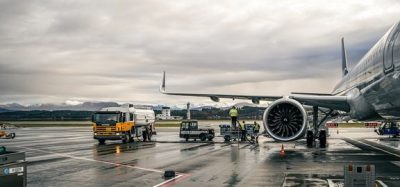Sustainability Series: Will waste gases from steelworks soon be powering aircraft?
Posted: 30 August 2019 | International Airport Review | No comments yet
As the climate crisis gets ever more paramount, the aviation industry must do all it can to minimise its effects on the environment. Could waste gases be the answer?


The production of steel produces waste gases, an unfortunate byproduct of the process, but a new strategy from the Port Talbot plant of Tata suggests that this waste gas could be used to power thousands of flights every year by generating more than 30 million gallons of biofuel.
A Tata Steel spokesman, told the BBC: “Developing any technology to transform CO2 from our steelmaking processes into valuable resources for other industries is of huge importance. LanzaTech has the technology to transform waste CO2 from the steelmaking process into ethanol and is now seeking permission to develop a plant at our site in Port Talbot to convert that into jet fuel.”
Neath Port Talbot Council’s Deputy Leader, Anthony Taylor, told the BBC: “We certainly have an ambitious agenda with this strategy and heavy industry has to be a part of that. We accept Tata is one of the main carbon emitters across the whole of Wales. We don’t want to endanger the economic side of things, but we have to tackle the environmental issues from this as well.
Join our free webinar: Revolutionising India’s travel experience through the Digi Yatra biometric programme.
Air travel is booming, and airports worldwide need to move passengers faster and more efficiently. Join the Digi Yatra Foundation and IDEMIA to discover how this groundbreaking initiative has already enabled over 60 million seamless domestic journeys using biometric identity management.
Date: 16 Dec | Time: 09:00 GMT
rEGISTER NOW TO SECURE YOUR SPOT
Can’t attend live? No worries – register to receive the recording post-event.
“Taking something that has previously been regarded as waste in the industrial process and harnessing it would give Tata Steel the opportunity to make some money from the waste it produces.”
In 2018, Virgin Atlantic powered its first flight with next-gen fuel, as Gatwick welcomed the world’s first commercial flight using this technology. The fuel technology captures and recycles carbon-rich industrial waste gases from steel mills into ethanol – gases that would otherwise go up the chimney into the atmosphere.
In July 2018, then Secretary of State, Chris Grayling, said: “The waste-to-jet fuel project has the potential to help transform the aviation industry by reducing greenhouse gas emissions and improving the air quality around our country’s airports. That is why we are providing support to this important technology as part of our £22 million of funding for alternative fuels, which will pave the way for clean growth in the UK. Supporting important developments like this is just part of our work to help ensure our aviation sector is greener than ever, and we will explore further measures as part of our Aviation Strategy.”
Richard Branson said: “We are working with LanzaTech to turn this new fuel into a day-to-day reality, and want to secure the world’s first carbon capture and utilisation (CCU) commercial jet fuel production facility in the UK.”
Jennifer Holmgren, CEO at LanzaTech, added: “With our carbon smart partner, Virgin Atlantic, we have shown that recycling waste carbon emissions into jet fuel is not impossible, that waste carbon needs to be thought as an opportunity not a liability, that carbon can be reused over and over again. We thank all our partners and governments on both sides of the Atlantic for their support. Together we can create the carbon future we need.”
Carl Wolf, Vice-President of Tata’s European endeavours, said the process is similar to that of a brewery: “It’s a bit like retrofitting a brewery onto a steel mill. We can use a variety of waste carbon, from industrial off-gases to gasified solid wastes like agricultural residues and unsorted, unrecyclable household waste. We have also developed a technology that converts alcohols, such as ethanol, into jet fuel. This is increasingly important as the aviation sector needs to meet its self-imposed carbon reduction targets.”
Stay Connected with International Airport Review — Subscribe for Free!
Get exclusive access to the latest airport and aviation industry insights from International Airport Review — tailored to your interests.
✅ Expert-Led Webinars – Gain insights from global aviation leaders
✅ Weekly News & Reports – Airport innovation, thought leadership, and industry trends
✅ Exclusive Industry Insights – Discover cutting-edge technologies shaping the future of air travel
✅ International Airport Summit – Join our flagship event to network with industry leaders and explore the latest advancements
Choose the updates that matter most to you.
Sign up now to stay informed, inspired, and connected — all for free!
Thank you for being part of our aviation community. Let’s keep shaping the future of airports together!
Related topics
Emissions, Sustainability, Sustainable Aviation Fuel (SAF), Sustainable development
Related airports
Related airlines
Related organisations
Related regions
Related people
Anthony Taylor, Carl Wolf, Chris Grayling, Jennifer Holmgren, Richard Branson

















